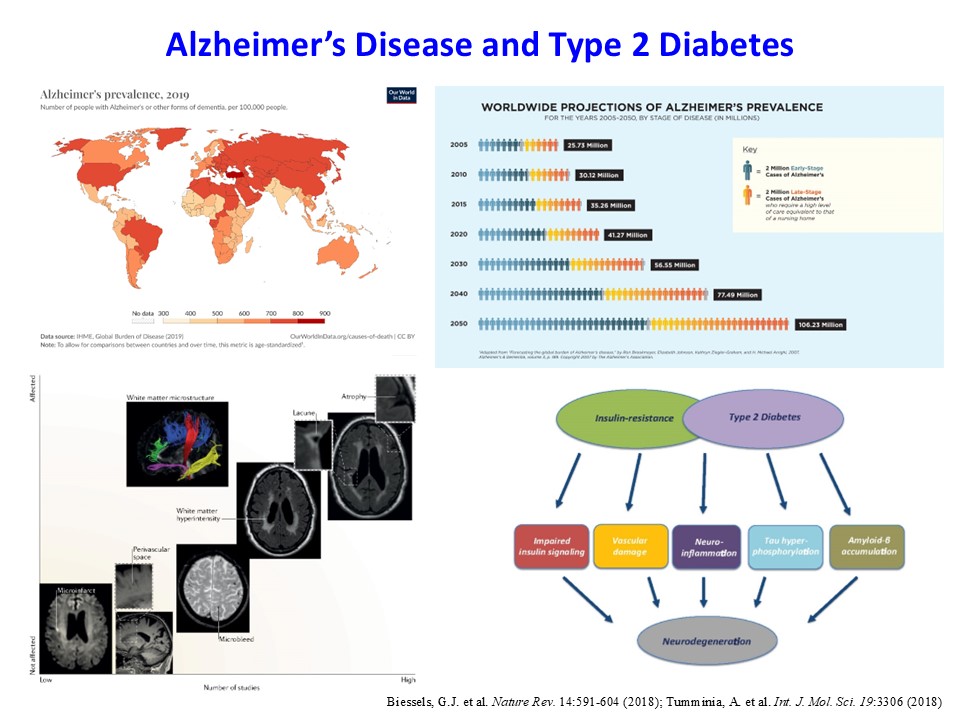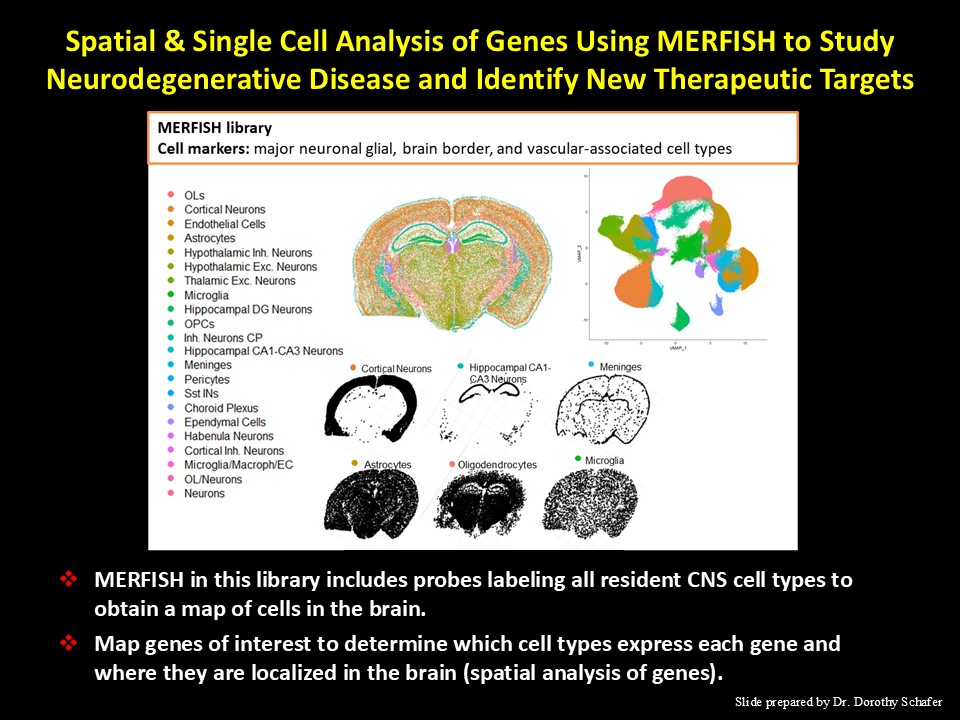Alzheimer’s Disease Research Projects
Role of Peripheral Insulin Resistance and Inflammation in Alzheimer’s Disease
As a key risk factor for Alzheimer’s disease (AD), aging induces a biological modification of cells affecting multiple organ systems through complex pathways that are unresolved. Interestingly, insulin resistance, a major characteristic of obesity that increases with aging, is a common shared feature in AD and metabolic diseases. Indeed, recent studies have alluded to a possible connection between peripheral insulin resistance and neurodegeneration, but this connection remains poorly defined. A key feature driving insulin resistance is inflammation, as metabolic organs are infiltrated by macrophages, releasing pro-inflammatory cytokines that impair insulin signaling and glucose metabolism. Intriguingly, increased pro-inflammatory molecules and microglia, as brain-resident macrophages, are also characteristic of the AD brain. Thus, our goal is to delineate whether changes in peripheral metabolism and inflammation are mechanistically linked to similar changes and neurodegeneration in the AD brain.

